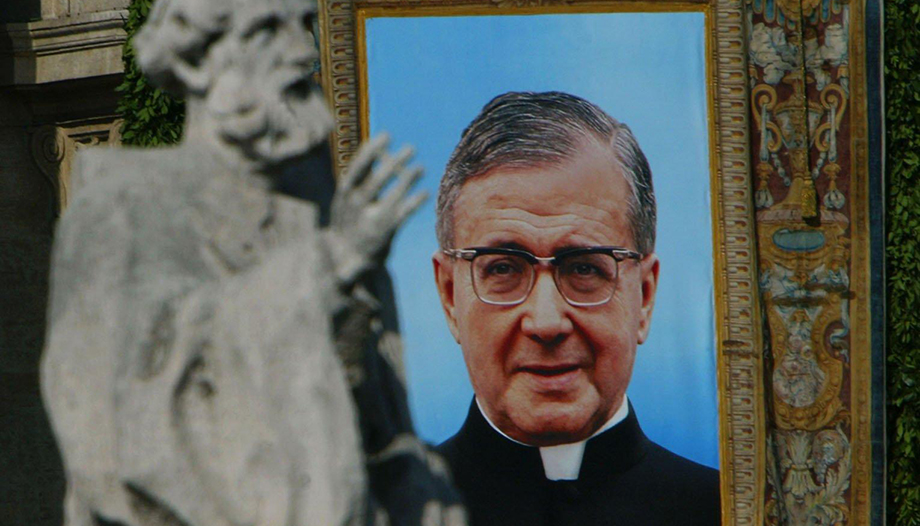On the occasion of the 60th anniversary of the publication of the Pastoral Constitution "....Gaudium et spes"The Pontifical University of the Holy Cross has prepared a three-year program of reflection on the relationship between faith and culture, the meaning of work and the role of Christians in the promotion of the common good, with seminars and meetings of experts, as a way of reflecting on the centenary of the founding of Opus Dei (1928-2028).
The second event of this initiative took place on Monday, January 13, in the Alvaro del Portillo Hall, with the participation of Luis Romera, Professor of Metaphysics in the School of Philosophy, and Giuseppe Tanzella-Nitti, Professor of Fundamental Theology in the School of Theology, who spoke on the theme "Identity and telos of secular realities in the light of St. Josemaría's thought.
Work as an instrument of sanctification
The debate was opened by Luis Romera, with a reflection on the centrality of work in the thinking of the founder of the Opus DeiIn this way, every human activity, even the most seemingly ordinary, acquires a transcendent value. "Work is not only a means of subsistence, but a call to participate in God's creative and redemptive plan," he explained, echoing number 40 of "Gaudium et spes."
The philosopher then quoted the German theologian Gerhard Lohfink to underscore how the Kingdom of God is not relegated to eschatology, but is realized in the present through the responsible action of believers. He then reiterated the importance of work as a means of making God's love visible: "Christ is present at the very heart of human work: he inspires it, transforms it and directs it towards the Father," he added.
In a central passage, Romera pointed out that this vision requires a profound theological and intellectual formation, capable of combining competence and faith. Indeed, "it is not enough to know the catechism; it is necessary to understand it in depth, because only in this way can the Christian live authentically his commitment in the world".
The professor of Metaphysics concluded his talk by strongly recalling the role of the Christian as a builder of the Kingdom of God through his work: "every gesture, every activity, if done in Christ, can contribute to making God's love visible in the world. And this is not "a distant utopia, but a reality that is built in the present", since every Christian "is called to transform secular realities, making them a reflection of God's love".
Autonomy and filial freedom
Giuseppe Tanzella-Nitti's talk focused on numbers 33-39 of Gaudium et Spes, dedicated to the theme of the autonomy of earthly realities. The theologian analyzed how modernity has transformed the concept of autonomy into a pretension of self-affirmation and rejection of God, leading to results such as relativism and nihilism. Rather, he explained, citing authors such as Cornelio Fabro and Augusto Del Noce, "modernity has misunderstood autonomy, separating it from its ontological bond with God."
The scholar then pointed out that in St. Josemaría's thought there are valuable elements for overcoming this misunderstanding, since "autonomy and filiation do not exclude each other, but refer to each other. Moreover, true freedom is not opposition to God, but a filial relationship with him.
Particularly incisive was the reference to the "forma Christi," that is, to the Christian's ability to transform the secular world from within, inspired by charity and divine filiation. "Filial freedom does not diminish man's autonomy, but is its foundation and strength," he added.
The same applies to the question of Christian secularity, which is distinct from secularization. In fact, Christian secularity "does not deny the autonomy of earthly realities, but recognizes them as a space for living the faith. It is the place where the creature exercises its freedom in charity, leading the world towards its fullness in Christ".
In concluding his speech, the theologian launched an invitation to practice, concretizing this synthesis between Christianity and modernity beyond theoretical reflection and through "life experiences that reveal how the forma Christi can inform all aspects of human existence."
Next initiative
The next initiative planned by Holy Cross in this three-year program of deepening the centenary of Opus Dei will be a meeting of experts who will reflect on the Images of human work in contemporary thought. It will take place on May 29 and 30, and for the occasion a call of papers.








